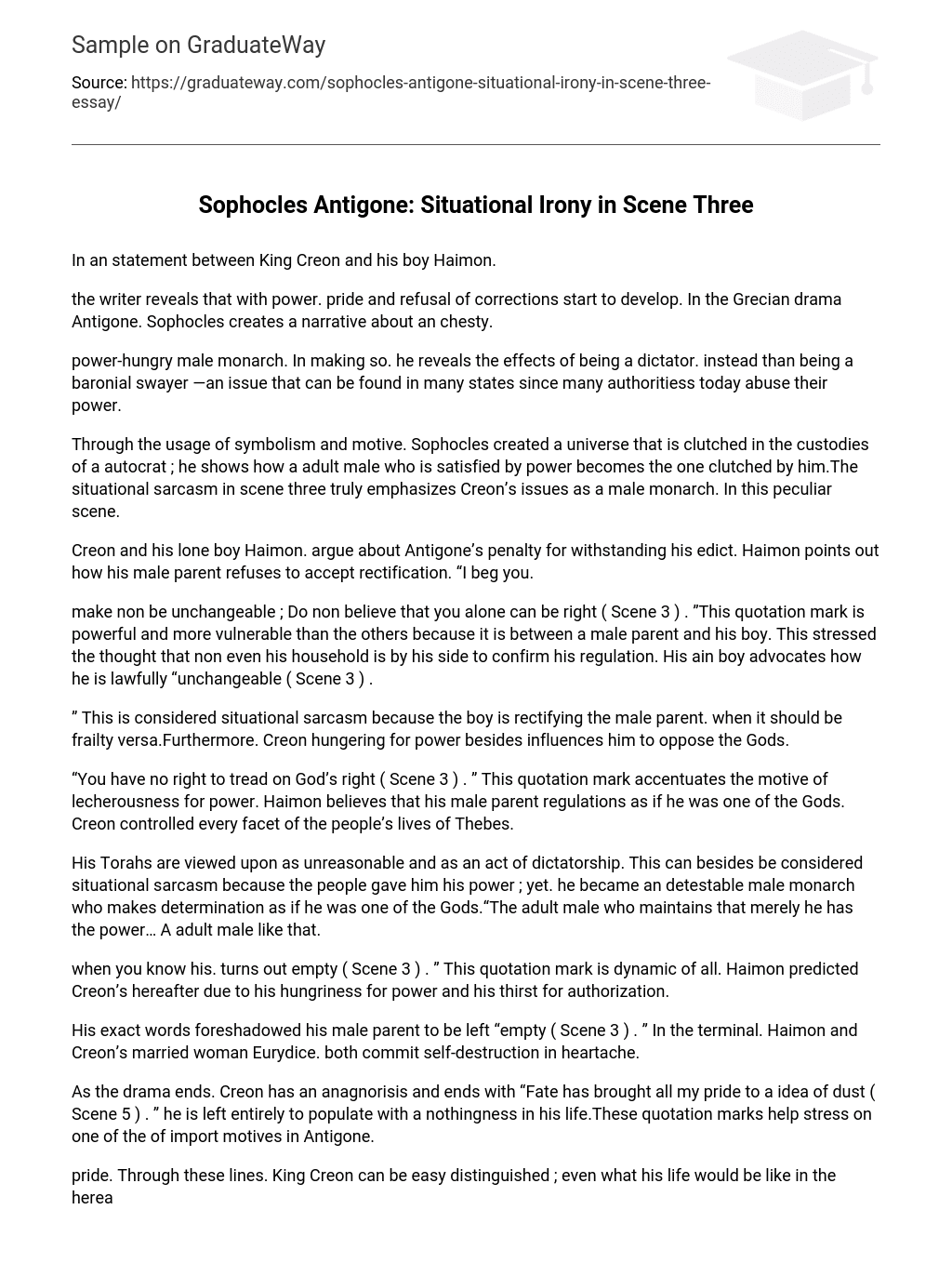During a conversation between King Creon and his son Haimon, a statement was made.
In the Grecian drama Antigone, Sophocles depicts a narrative in which the writer exposes the emergence of power, pride, and a refusal to accept corrections. The main character, Antigone, is portrayed as arrogant.
By being a power-hungry male monarch, he shows the consequences of being a dictator rather than being a noble ruler. This issue can be observed in many countries as numerous governments nowadays abuse their power.
Using symbolism and motif, Sophocles crafted a world ruled by a tyrant, illustrating how a man obsessed with power becomes controlled by it. The situational irony in scene three highlights Creon’s struggles as a king.
Creon and his only son Haimon engage in a dispute regarding the punishment for Antigone’s defiance of his decree. Haimon emphasizes his father’s refusal to acknowledge the need for justice. “I plead with you.
Do not believe that you alone can be right (Scene 3). This quotation is powerful and more vulnerable than the others because it is between a father and his son. This stresses the idea that not even his family supports his rule. His own son advocates how he is legally “unchangeable” (Scene 3).
“This can be classified as situational sarcasm because the boy is correcting the father, when it should be vice versa. Additionally, Creon’s craving for power also motivates him to go against the Gods.”
“You have no right to tread on God’s right (Scene 3).” This quote emphasizes the desire for power and lustful motives. According to Haimon, his father rules with the same authority as a god. Creon has complete control over every aspect of the lives of the people in Thebes.
His Torahs are seen as unreasonable and dictatorial, which can also be seen as ironic since the people gave him his power. However, he has become a hated king who makes decisions as if he were a god. “The man who believes that only he has the power… A man like that.”
When you know his turns out empty (Scene 3). This quotation mark is dynamic of all. Haimon predicted Creon’s future due to his hunger for power and his thirst for authorization.
The words he said indicated that his father would be left “empty (Scene 3).” Ultimately, Haimon and Creon’s wife Eurydice both take their own lives in grief.
At the conclusion of the drama, Creon has a moment of realization and declares, “Fate has reduced all my pride to a mere idea of dust” (Scene 5). This utterance emphasizes one of the significant themes in Antigone. Despite his previous arrogance, Creon is now left to grapple with emptiness in his existence.
Through these lines, it is evident that King Creon can easily be distinguished and his life in the hereafter can be imagined. Sophocles effectively portrays the notion that with power comes pride through the encounter between King Creon and his son Haimon.
It is easy to determine the motive of Sophocles. He successfully supported his motive with powerful quotation marks that also helped to emphasize his thoughts throughout his work.





